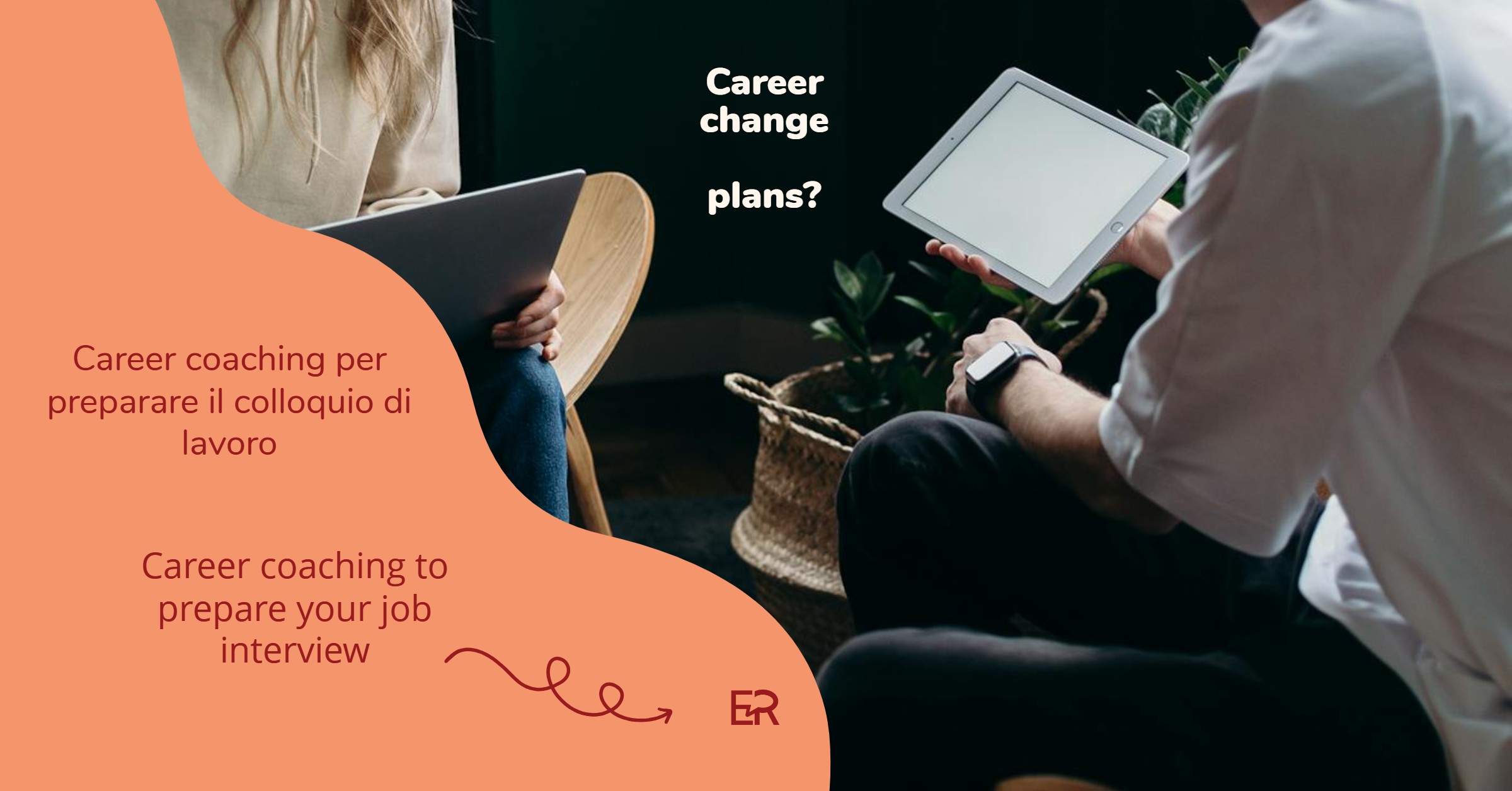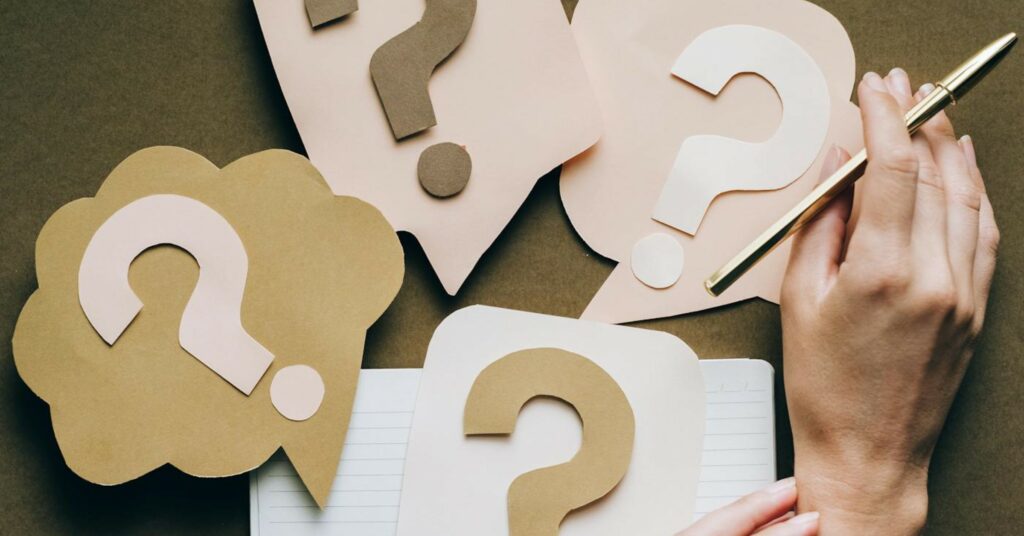
5 May 2024 3 typical job interview questions: be prepared with a career coach!
Career coaching questions are useful for preparing for a job interview as they help to shed light on the type of job that best suits the skills, competences and motivation of the jobseeker.
Why preparing questions with a career coach is useful for a job interview
There is no magic formula for preparing for a job interview, but keeping your objectives in mind - pass on their expertise, show interest and create a connection by being open to questions and provide answers to make themselves known - they will have more possibilities of a successful interview.

3 frequently asked Career Coaching questions in the job interview and 2 additional possible topics
All questions in a job interview are typical and the most varied; in this article I propose 3 that might arise more frequently.
Why these? Why aim to deepen the job idea of the interviewee and concern the meaning that each person attributes to their own career and development.
Let us therefore see the 3 career coaching questions and their meanings to respond coherently.
Question 1: Your job in a few years
"Imagine your job in three years and you are satisfied in your new career: what are you doing?"
This question aims to gain concrete knowledge of the professional aspirations and vision for the future. It allows one to grasp ambition, motivation and the ability to plan one's career over time.
The answer to this question should list as many thoughts and ideas as possiblefrom how one's working life will be different, to how one thinks one's personal life will be different, to the possible impacts even in the medium and long term. It is important to be able to articulate the reasons that motivate you to work in the field and role for which you are being interviewed and the value you are going to bring.
Question 2: Your path to results
"What do you want to get out of your new career/career change?"
This question aims to explore results and expectations, assessing specific interest in the role and the company. It is about how the person works to achieve concrete results; it is also about the concrete actions taken to get to the interview.
The answer should not be generic but as much personal, specific and realistic possible; it should demonstrate enthusiasm, curiosity and determination.

Question 3: Your personal skills (2 focus)
Focus 1
"What are some of your skills that you find most useful for doing the job?"
It is a self-assessment question and whoever asks this question expects to grasp the level of personal awareness personal skills to bring to the company.
The answer to this question should be about personal approach to challengesand the search for solutions to problems, and also the ability to relate and collaborate with other people. The focus is on one's own skillsIt is about highlighting concrete examples of how skills and abilities have been used in the past and how one imagines they can be reused in the new job.
Focus 2
"What are the improvements and steps forward over the past year?"
This may sound like a generic question, actually is a question which deepens the previous one and concerns precise answers on the self-determination individual way.
The answer should bring out a growth mindset. When talking about improvements, it is important to outline
the situation from which one started,
how the need for development and
how the objectives were achieved.
The focus is on the process used to improve.
Some examples that can be described include:
- completed training courses,
- increasingly positive reviews from managers, colleagues or customers,
- specific targets set and improved (such as sales quotas, customer service response times or work volumes),
- innovative strategies proved on the job,
- self-assessment of elements that led to personal improvement of one's productivity (time or work organisation).
2 additional possible topics of a job interview
In a job interview, there may be 2 additional topics not directly mentioned in one's CV but that could be explored during the interview.
These concern, for example areas not directly related to the job position for which you are interviewed for which one presents oneself and previous work experiences that have left one dissatisfied that you would not want to talk about.
Before going for an interview, it is therefore useful to take time to reflect on these aspects and prepare concrete examples to share.

Topic 1: Describe something about yourself...
"Describe something about yourself that you did not include in this CV; but also something that hints at skills not mentioned or projects that are considered minor but could count (activities related to hobbies or volunteering, etc...)"
What we want to grasp here is resourcefulness and practicalitythe ability to perform some task quickly and autonomously. It is important to mention a few examples, without going into too much detail, even if there does not seem to be a direct link with the activity and role for which the interview is being conducted.
The interview is in fact also an opportunity to bring out personality and inclinations.
Topic 2: The Story of a Misstep or Mistake
"Give an example of something you tried but did not work in your work and the lesson learnt".
Although it may seem unpleasant and uncomfortable to talk about something you were not satisfied with, this question is about one's willingness to experiment and risk-taking.
Failure is part of the desire to push one's limits and, in part, to be innovative in a creative way. In work, experimenting and trying new things is often appreciated.
A balanced response, then, is not is minimise your missteps, but to do so by highlighting the fact that they still had the opportunity to try new things, quickly evaluated whether they worked and have gone ahead if the result did not meet the desired expectations.
Conclusion: how career coaching questions prepare for the job interview
Answering job interview questions is stressful, but preparing in advance, also with the help of a career coach, has the advantage of clarifying well one's objectives, work out how to present one's competences, skills and personal qualities in the best possible way and prepare to participate actively and consciously in the interview.
It should also not be forgotten that the interview usually ends with questions from the candidates to the recruiters, and these, too, should be prepared keeping in mind the need to linking them explicitly to topics that arose earlier in the interview, thus pointing out that they were listened to.
Do you need the help of a career coach to prepare for a job interview?
You may also be interested in
